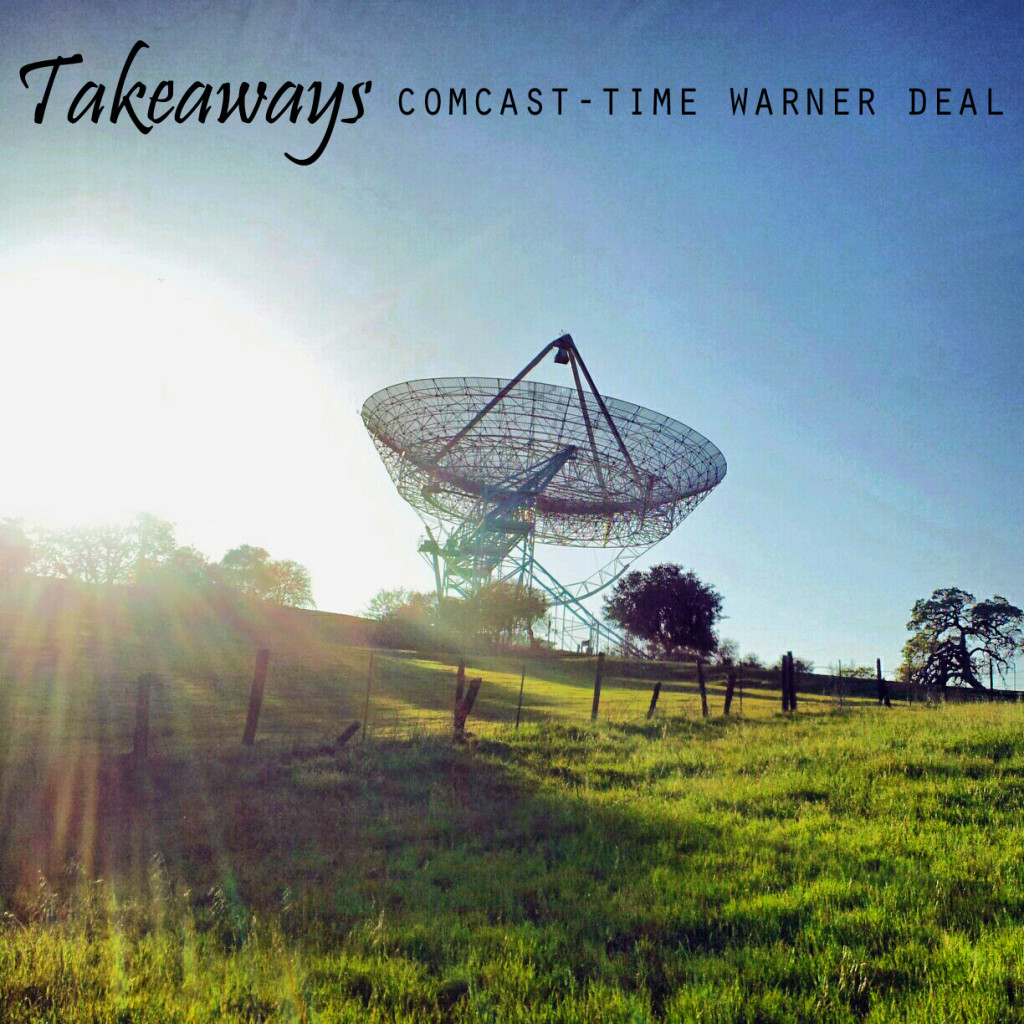Comcast Withdraws from Merger with Time Warner Cable
Comcast has announced that it is formally withdrawing its proposed $45B merger with Time Warner Cable, after it failed to convince regulators at the Federal Communications Commission (FCC) to approve the transaction. Opponents of the merger argued that the transaction would result in Comcast controlling more than fifty percent of broadband.
Takeaways for Lawyers from the Failed Comcast Time Warner Merger
The failed Comcast Time Warner merger has two important takeaways for lawyers with respect to working with regulatory agencies:
1. Always Consider Which Regulatory Agencies Needs to Approve the Merger
When working on a merger, we’re trained to automatically consider if Hart Scott Rodino (HSR) approval is needed, but what about other regulatory agencies. In the Comcast Time Warner proposed merger, approval by the FCC was required. According to the FCC website:
Before a company may assign an FCC license to another company or acquire a company holding an FCC license, it must receive the Commission’s approval. The Commission reviews applications for the transfer of control and assignment of licenses and authorizations to ensure that the public interest would be served by approving the applications.
Although the FCC had not formally rejected the merger, news reports indicate that the FCC would have recommended issuing a “hearing designation order” which would have let an administrative judge decide the merits of the proposed transaction and would very likely have resulted in a no-go for the merger. The Comcast Time Warner proposed merger highlights that lawyers should always consider whether any regulatory agencies need to approve the merger based on the business of the client and the proposed transaction, and ensure that the proper specialist is contacted early to get the approval process under way as soon as possible.
2. When Regulatory Approval is Required, Ensure that the Transaction Agreements Include a Way Out for the Buyer if Regulatory Approval is Not Obtained
Many proposed mergers, particularly those with a high consideration amount and where approvals need to be obtained to effect the merger are structured as a two part, sign then close transaction. These approvals can include shareholder approvals and third party approvals, such as approvals from lenders and regulatory agencies. As the Comcast Time Warner proposed merger shows, obtaining regulatory approval is not always an easy task. If that regulatory approval isn’t obtained, the buyer in a transaction is not going to want to be sued for breach of contract for failure to close on the deal or be left with a worthless asset they cannot use because they are barred by regulatory restrictions. When regulatory approval is required, lawyers should always include a provision in the transaction agreements that essentially gives the buyer an opportunity to walk away, just as Comcast did. This is frequently structured as a closing condition; if the closing condition of the regulatory agency approval is not obtained, then the transaction cannot close and the parties are free to part ways without any breakup fees being paid.
